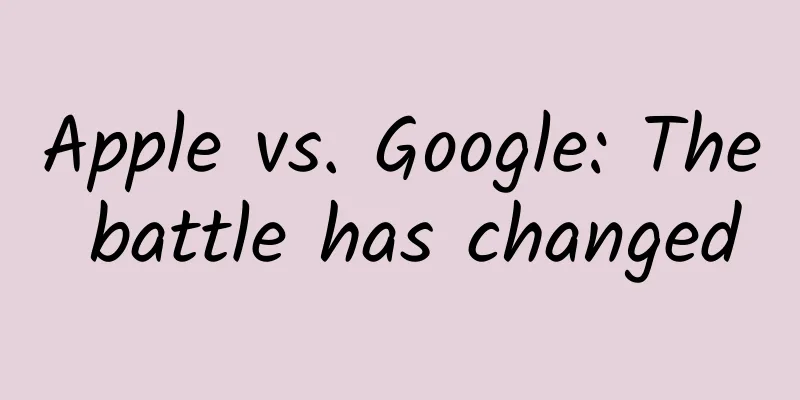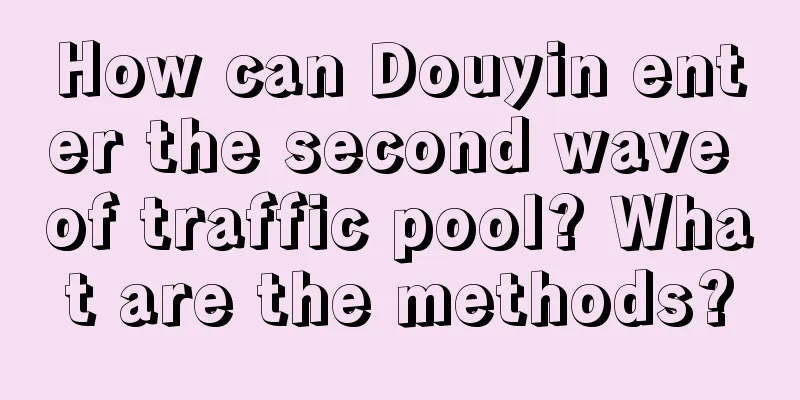Apple vs. Google: The battle has changed

|
The most important message we can get from Google's 2015 I/O Developer Conference is that Google and Apple have completely different attitudes towards mobile technology. They each have their own mission and strategy. After years of fierce competition in the smartphone market, the battle between the two technology giants has changed. Google's ambitions include connecting the next billion users and making its package services also support iPhone users (nearly 500 million people). Apple's goal is to make technology more personalized and reduce dependence on the products and services of its arch-rival Google. The next big battle in mobile has begun, and it could be just as intense as the first. This battle is going beyond smartphones, and it’s all about which platform can provide a better experience for users and more successfully capture their time. The battle between Apple and Google has been changing and going through different phases since the launch of the iPhone in 2007. Initially, the two sides fought for smartphone market share, then Samsung led the consolidation of Android OEMs, now the renaissance of large-screen phones, and then a new battle beyond smartphones. Daily Activation Battle (2009 to 2011) In the early days of the smartphone war, the focus of competition among all parties was mainly on market share. The focus of the technology media was on which mobile operating system performed better in terms of sales. Google, especially Andy Rubin, the "father of Android", regularly announced the daily activation data of Android. Just when Google was complacent about this, Apple founder Steve Jobs poured cold water on it in the fourth quarter of 2010 financial report. Jobs' point of view was clear: to make iOS a platform worth developing applications. Jobs said: "Last week, Eric Schmidt (Google executive chairman) reiterated that Android devices are being activated 200,000 times a day, and their app store has 90,000 apps. In comparison, in the past 30 days, Apple iOS devices have been activated an average of 275,000 times a day, with peaks reaching 300,000. In addition, the Apple App Store has more than 300,000 apps." The battle between Google and Apple has not only affected the market and the media, but also the courts. Apple has taken many hardware companies that use Android to compete with Apple to court, accusing them of patent infringement. Apple's purpose in initiating litigation is not to claim compensation, but to curb competitors. In the early days of the smartphone war, market share was everything. Samsung dominates (2012 to 2013) Between 2012 and 2013, Samsung relied on the Android ecosystem to achieve "dominance" due to the lack of Apple's large-screen iPhone in the high-end market and the lack of competitive forces that could match it in the low-end market. Although iOS users did not defect to Samsung on a large scale, as a hardware manufacturer, Samsung has a huge sharing network that gives it amazing power in the Android ecosystem, which makes Apple wary. Samsung gradually led the battle to TV, and mocking Apple users through advertisements was a very successful strategy, not to mention the battle between the two sides in court. There is evidence of how seriously Apple took the Samsung threat: In 2012, Apple's global marketing chief Phil Schiller tried to prevent Samsung from holding a grand Galaxy S4 launch event in New York City. He spoke to the Wall Street Journal the day before the launch, trying to discredit Android and counter the overwhelming positive coverage of Samsung. Schiller said: "Android is often seen as a free alternative to feature phones, and the experience is not comparable to the iPhone... When you take an Android device out of the box, you have to sign agreements with nine different manufacturers to get the experience that comes with iOS." It is worth noting that Apple only positions Samsung as its main competitor in the hardware field, and regards Google as its ultimate long-term threat. Apple believes that Samsung has gained market share purely based on the Android system. Without the Android system, Samsung phones are not competitors to the iPhone at all. New war Apple has found itself with nearly 500 million iPhone users. Apple has a strong market position in key geographies, including the United States, the United Kingdom, and China. Any concerns that iOS is being squeezed by Android OEMs and could repeat the fate of Windows are unfounded. Apple's iOS platform has now reached critical mass, attracting developers and third parties to support iOS users, including Google, Facebook, and Twitter. One of the clearest themes from Google's 2015 I/O developer conference was that Google needs iOS and its 475 million highly active iPhone users to make its business model a success. Looking ahead, if iPhone sales continue to grow at a 10% to 20% rate, it will be impossible for third parties that rely on scale to make money to ignore an ecosystem of 600 to 700 million potential users. Some might argue that Google’s decision to limit Google Maps on iOS a few years ago was a strategic mistake, which led Apple to develop its own map app. But that’s hindsight, and Google might have thought it was worth betting on iOS because the system was completely different and weaker than it is today. The battle between Apple and Google goes beyond smartphones. Walk into a carrier store and you have to choose between an iPhone and an Android phone, both of which have Google services. In addition, iPhones and Android phones are roughly the same price. Google may be good at machine learning-based cloud services, but it has not become a significant factor in buying an Android phone. Given the limited distribution of Nexus devices, it is hard to believe that Android hardware will become an alternative for most users. Instead, the decision to buy a smartphone may increasingly be based on other factors, such as the glass (smartwatch), wallet or backpack (tablet), home or work surface (desktop/laptop), etc. Expand these experiences further to third-party devices at home and on the road, and the entire iOS or Android ecosystem is becoming a larger factor in which smartphone you choose. Apple Strategy Apple wants to occupy the intersection of technology and liberal arts. Creating a personalized technology experience will require Apple to continue to control the variables that are being integrated to create a newer experience for users. The focus is on owning key technologies and services, otherwise you may only be able to rely on scale in the future. For example, in order to avoid map crashes, its functions need to be restricted by third parties. In the future, maps are likely to become a core capability for meeting personal transportation needs. If iOS represents a minority share of the automotive market, this market positioning may bring competitive risks and require reliance on third parties to provide map data. The same idea applies to Apple controlling the user experience and providing content such as movies and music to users. Note that Apple does not need to own or produce content in order to meet its goals. Instead, acting as a bridge between content providers and users leaves enough room for Apple to add new elements to the experience. Apple may extend this experience to Android to further attract people to iOS devices. Another way Apple maintains its user experience is by supporting emotions and feeling luxury. Take the Apple Watch, for example. It is available in different models, ranging from $400 to $17,000, depending on the materials used. This difference creates emotions that cannot be matched on Android or other competing platforms. Google Strategy Google's ambitions are focused on its cloud-based services, which are increasingly in competition with Facebook. Google's business model is based on solving technical problems by accessing the world's data, and it wants all smartphone users to use its products, whether you are an Android user or an iOS user. Similar to Google, Facebook is pursuing the same goals. Just as Facebook split its core app into app suites, Google seems to be taking a similar path, creating services and app suites. Google wants to occupy the intersection of technology and computer science. Judging by the composition of its engineering talent, I think there is no doubt that Google will continue to push these initiatives. Looking ahead Google has made it clear at its 2015 I/O developer conference that it needs Apple and iOS. Ignoring this highly engaged user base, especially as other companies such as Facebook emerge on the iOS platform, will have a serious impact on Google's ambitions. On the other hand, Apple also needs Google because its services are very popular among iOS users. However, judging by Apple's previous actions and mission statement on personalized technology, I believe that Apple will continue to reduce its reliance on Google because it still represents a long-term threat to Apple's mission. I think Apple will continue on its current path, producing iPhones and providing apps and services that will probably keep them in the Apple ecosystem without too much interference from Google, but most users will end up somewhere in the middle, using both Apple and Google products and services, and it is this quest to control the entire user experience that will ultimately prove that there is real competition between Apple and Google. The possibility of Android defeating iOS becomes more and more remote as time goes by. Instead, Google is relying more on the healthy iOS platform, which provides an opportunity for iOS to continue to grow and gain additional power. Meanwhile, the Android platform continues to fragment and become less and less important to Google's mission. Now, the main question is how Apple will get rid of its dependence on Google services. We have seen many signs that Apple is replacing Google services with its native apps. This motivation is likely to represent a driving factor that will lead to a continued war between the two sides. We may see occasional clashes between the two sides over individual features and services, but a bigger battle is coming: Apple and Google are both built on different worldviews, and they are both fighting for the user's most experience time, and this battle has gone beyond the scope of smartphones. |
<<: Steve Jobs’ prediction—e-commerce
>>: Front end, why don't I want you
Recommend
A brief introduction to goal-driven product operations!
1. Find out the current problems Here, the operat...
How to improve the conversion effect of Google advertising?
The first step - how to judge the problem of cert...
How to shoot alcohol brand advertisements?
Recently, Budweiser beer became a hot topic becau...
Promotion skills and operation procedures after the App is launched!
Before I start sharing tips with you, let me firs...
Analysis of the hot marketing calendar in December!
December Holidays December 1 World AIDS Day Decem...
What is it like to write code for ten years?
[[148381]] I found that there are many engineers ...
What should I pay attention to when developing WeChat mini-programs in Lanzhou? What are the procedures for developing WeChat mini programs in Lanzhou?
What should I pay attention to when developing We...
Four tools to double the quality of your Android code!
In this article, I will introduce how to improve ...
How did you spend the Dragon Boat Festival holiday? Tourism revenue in the first two days of the Dragon Boat Festival holiday was 9.66 billion yuan
According to the official Weibo of the Ministry o...
Take a look at other people’s new marketing promotion methods for the Qixi Festival!
Take a look at other people's new marketing m...
How to create creative copy for TikTok advertising on e-commerce platforms?
Recently, the favorite advertising resource of fo...
How to carry out a systematic revision? An in-depth analysis of JD APP 11.0!
In an external environment disturbed by uncertain...
The popular model commonly used in NetEase H5!
Good ideas are not impossible to replicate. This ...
[Hu Yong SEO] Some SEOs have been working for more than ten years but are still rookies. Why is this so?
Some SEOs have been working for more than ten yea...
The difference in brand marketing between KFC and McDonald’s!
Introduction: Whether it is KFC's down-to-ear...









